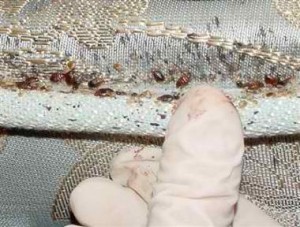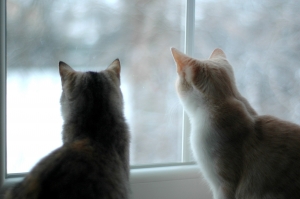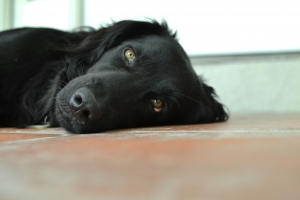 Its summer time and many of us hit the road for some rest and relaxation. Of course we want to take our pets along and many of us may never have considered bed bugs to be a problem for our pets. With animals, bed bugs can be just as much of a pest as with humans and your pet could bring the critters home with them.
Its summer time and many of us hit the road for some rest and relaxation. Of course we want to take our pets along and many of us may never have considered bed bugs to be a problem for our pets. With animals, bed bugs can be just as much of a pest as with humans and your pet could bring the critters home with them.
“July, August and September are definitely busier than the rest of the year and we’ve seen that trend from every corner of the country,” says Jeffery White, a research entomologist with BedBug Central, “Dogs, cats, birds, guinea pigs. Any pet, for instance, could be a food source for a bed bug,” says White.
Bed bugs have a history of attacking warm-blooded animals and enjoy feeding on areas with limited fur. That is why humans make a perfect target but our pets also have areas of their bodies that have less fur and therefore make them a target as well. It seems that bed bugs don’t navigate well in fur.
While bed bugs generally don’t live long on pets like fleas or ticks they can be just as annoying. “Pets can transport bedbugs. Just mechanically, the bed bug hitches a ride on your pet and gets into your house,” says Kimberly May, DVM, with the American Veterinary Medical Center. “You need to check their bedding. You also need to check their soft toys, because there could be bed bugs in there,” advises May.
In hotels there are things you can do to prevent exposing yourself and your pet to bed bugs in the first place. Make sure you check out the hotel room first before bringing your pet through the door. You should inspect the bed because if bed bugs are present you should be able to see them. “One of the most common areas that you want to inspect when you stay in a hotel room is either the headboard, where bed bugs will typically hide, or the bottom of the box-spring,” says White.
It is suggested that you put your pets bedding in the bathroom, while staying at the hotel, where there is less chance of bed bugs being in residence. You could consider spraying your pet’s carrier upon departure. You should also inspect your pets bedding and be sure to wash the bedding and chew toys once you reach your home with the hottest water available. If your pets bedding is torn or has holes in it, you should consider throwing it away.





